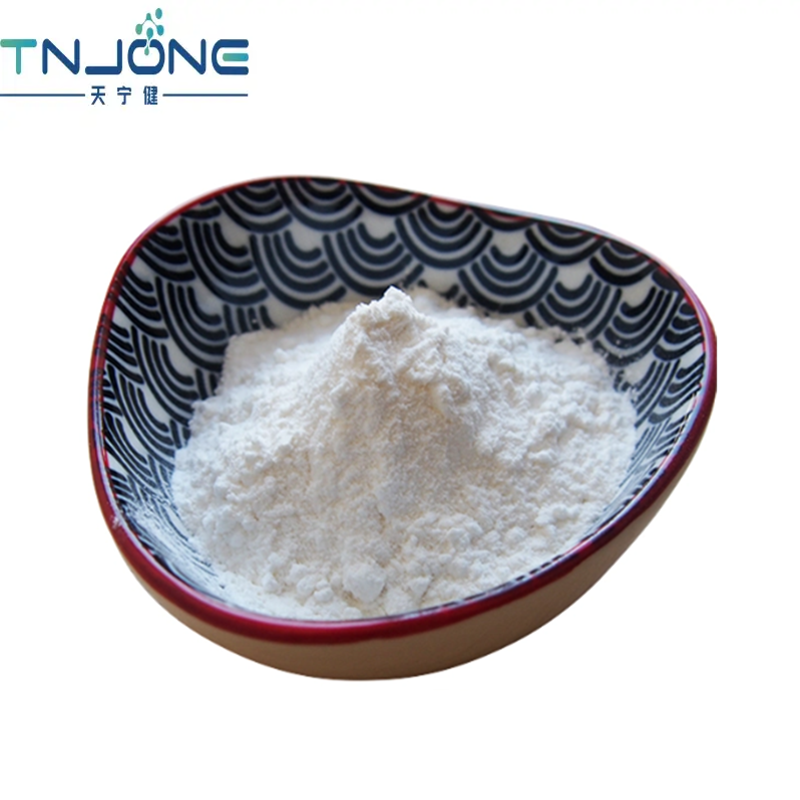-
Categories
-
Pharmaceutical Intermediates
-
Active Pharmaceutical Ingredients
-
Food Additives
- Industrial Coatings
- Agrochemicals
- Dyes and Pigments
- Surfactant
- Flavors and Fragrances
- Chemical Reagents
- Catalyst and Auxiliary
- Natural Products
- Inorganic Chemistry
-
Organic Chemistry
-
Biochemical Engineering
- Analytical Chemistry
-
Cosmetic Ingredient
- Water Treatment Chemical
-
Pharmaceutical Intermediates
Promotion
ECHEMI Mall
Wholesale
Weekly Price
Exhibition
News
-
Trade Service
Since the reform and opening up, China's economy has been developing steadily, social resources are abundant, and the diet on the tip of the tongue is more abundant and abundant, but some unhealthy eating methods have also come along. The European Journal of Clinical Nutrition recently published a study by Ding Gangqiang and Zhang Bing of the Chinese Center for Disease Control and Prevention. The researchers analyzed the database and related reports of China's National Nutrition Survey in 1982, 1992, 2002 and 2010-2012, as well as data from the China Health and Nutrition Survey from 1989 to 2015. The study points out that the nutritional problems of Chinese people are more prominent, especially the double challenge of undernutrition and overnutrition.C pork intake is too high
fish egg milk nuts less than
studies show that over the past few decades, the diet of Chinese people has changed significantly, grains, vegetables eat less, and meat, especially pork, eat more, from 37.1 g/day to 64.3 g/day, half of the Chinese people eat more livestock than recommended by the guidelines.
fish and seafood fell from 27.5g/day to 23.7g/day. Excessive intake of fat, internal organs and red meat increases the risk of high blood lipids and increases the risk of cardiovascular disease. The Dietary Guidelines for Chinese Residents recommend a daily intake of 40-75 grams of aquatic products, which can later be appropriately reduced and replaced with poultry, fish or seafood.
1982-2012, the intake of cereals in China fell from 509.7 g/day to 337.3 g/day, tubers from 179.9 g/day to 35.8 g/day, and vegetable intake fell from 316.1 g/day to 269.4 g/day. The Dietary Guidelines for Chinese Residents recommend 5 kinds of fresh vegetables per day, recommended meals have vegetables, the proportion of vegetable weight should account for more than half of the daily diet, dark vegetables accounted for more than 1/2.
From 1982 to 2012, Chinese residents increased their intake of fruit from 37 g/day to 40 g/day, dairy products from 8 g/day to 25 g/day, eggs from 7 g/day to 24 g/day, and nuts from 2 g/day to 4 g/day. These foods are good for the prevention of cardiovascular disease, and although the proportion has increased, overall intake is still low and well below the guidelines.
The Dietary Guidelines for Chinese Residents recommend that Chinese adults eat 200-400 grams of fruit per day, currently an average of only 40 grams;of hidden hunger
the micronutrient deficiency in most adults
the study also found that excess fat intake and hidden hunger are more prominent. From 1982 to 2012, the intake of cooking oil in China gradually increased from an average of 18.2 grams per person per day to 42.1 grams. The problem of overweight and obesity caused by excessive intake of fat in China is highlighted, often accompanied by metabolic abnormalities, and the risk of chronic diseases such as high blood lipids and diabetes increases significantly. It is recommended that the daily intake of cooking oil per person be controlled between 25-30 grams, when cooking cold mix, sauce, cooking, less frying, frying, frying.
World Health Organization defines recessive hunger as micronutrient deficiencies or nutrient imbalances. Proper intake of cereals, vegetables, fruits, dairy products and other foods can ensure adequate intake of various nutrients. In 2015, china's Health and Nutrition Survey showed that more than 50 percent of adults had below-average intake of vitamins, thiamines and vitamin C, and more than 85 percent and 95 percent of adults had insufficient intakes of kelatin and calcium.
this deficiency may be due to inadequate intake of coarse grains, fruits and vegetables, and dairy products. Proper dietary supplementation to ensure that people have access to adequate vitamins, minerals and essential nutrients can help prevent micronutrient deficiencies or hidden hunger. More vegetables, fruits, dairy products and other foods are recommended.
study, conducted by the Chinese Academy of Nutrition, and others, also found that a clear feature of the diet of Chinese residents was an increase in sweets. In the past, Chinese people basically rarely eat snacks, drinks are also mainly boiled water and tea. And the current mix of meals and snacks, has become the normal diet of The Chinese people. Among them, a variety of colorful, different tastes of drinks are favored by people of different ages. Yan Fengying and others predict that China's future processed food and beverages will increase significantly, Chinese health problems are facing challenges.
Ding Gangqiang, Zhang Bing, etc. pointed out that in order to control the intake of high energy, high fat, high sugar, high salt and over-processed food, we should adhere to the concept of "nutrition-guided consumption, consumption-guided production" and strengthen the management of food processing manufacturers and the catering industry. For the online catering industry, we should also strengthen scientific market supervision and consumption guidance. Advocate "Nutrition and Health and the Internet" services to achieve science and technology under the guidance of accurate intelligent nutrition services. Nutrition is also a lifestyle choice and needs to be developed and enhanced in communities and schools to raise awareness of nutrition and healthy eating.
addition, in 2016-2017, the Chinese government released the Outline of the "Healthy China 2030" Plan, the National Nutrition Plan (2017-2030), with a view to integrating nutrition into all health policies and improving the health of the whole population. Among them, the National Nutrition Plan (2017-2030) includes strengthening nutrition monitoring, promoting a healthy and balanced diet, and introducing control measures for oil, salt and sugar in processed foods.
.







